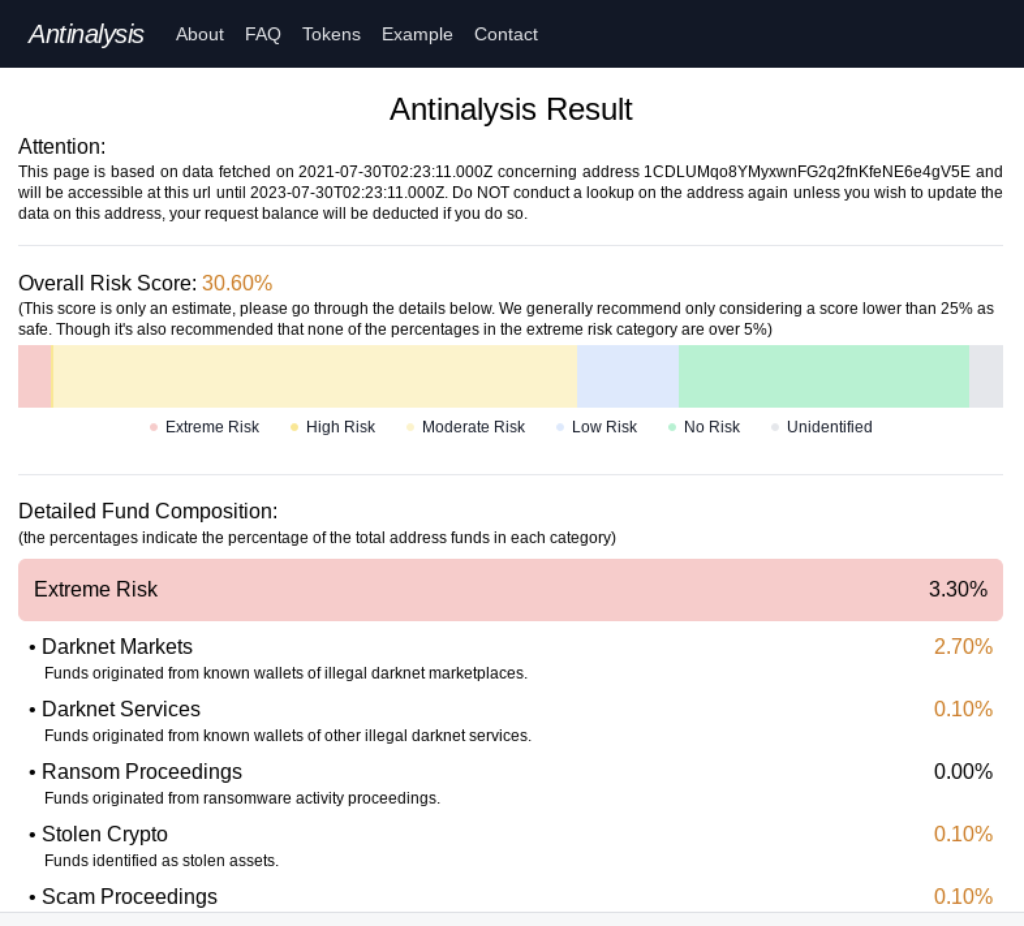You can detect ‘dirty’ Bitcoin for $3 — but this dark web tool is nothing new

Antinalysis, a new dark web tool designed to test if Bitcoin pegged for laundering will be flagged by authorities, appears to be a shonky knock-off of existing software, reports Elliptic.
The Tor-based tool claims to give internet baddies a heads up if cyberpolice can track their Bitcoin payments.
Antinalysis charges $3 to check each Bitcoin address to decide where its BTC comes from (dark web deals, ransomware payments, and the like).
It then divides an address’ crypto into categories ranging from “no risk” to “extreme.”

But despite Antinalysis’ claims that its results are “highly accurate,” Elliptic’s research tells a different story.
According to the London-headquartered analytics unit, the tool is inept at linking prominent darknet markets and illegal groups to Bitcoin set for laundering.
Antinalysis is just AMLBot
Elliptic initially reported the tool was significant “because it makes blockchain analytics available to the public for the first time.”
However, cybersecurity blog Krebs on Security noted Antinalysis isn’t new at all. Crypto tracing expert Nick Bax claimed Antinalysis resembles AMLBot, an anti-laundering service that’s been around for years.
“It looks almost identical to the cheap version of AMLBot,” said Bax. “My guess is they’re just white-labeling that.”
The figures back that hypothesis. When Bax ran AMLBot on a sample Bitcoin address, the risk identifiers were almost identical.

[Read more: Robinhood Crypto triples expected NY anti-money laundering fine to $30M]
“If you look at the breakdown the percentages are all almost identical,” said Bax.
Despite this, Elliptic points out Antinalysis could pose a significant threat by allowing launderers to screen their Bitcoin wallets as they decide how best to wash their ill-gotten crypto.
Find us on Twitter for more informed crypto news.
